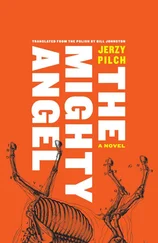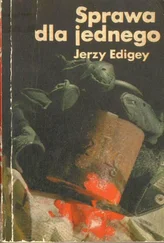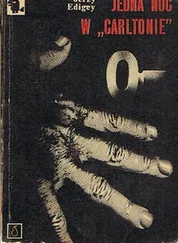“Do you understand? Have you ever had such situations? Seemingly nothing is happening, and yet an intangible filth is gathering? I’m not saying that it began to look like the boss of a brothel and his chief pimp were establishing conditions with a newly hired girl, but, to tell the truth, little was lacking for it. There was contempt in those guys, they were contemptuous in every gesture and inch of their bodies; even the fact that they didn’t order anything was contemptuous, that they took care of business coldly and dryly, without even a mineral water. And no matter what sort of business this was: whether they were hiring her, or she them, whether she was borrowing money from them or they from her, whether, as a result of this conversation, she was to go to the bottom or they to jail, whether they were offering her a lucrative trip to the Canary Islands, whether she was their last chance, whether they were proposing a role in a TV series to her, whether she was recruiting them for a sect — no matter what the arrangement was: in them, there was contempt; in her, humility. Nothing more occurred. The fake Mediterranean lout finished his speech; she raised her head, asked about something; he answered, perfunctorily and while looking at his watch; she wanted to say something more, but they weren’t listening, they were already getting up, already leaving.”
IX
A helicopter flew over the city, the clock on the Palace of Culture showed a quarter past six. The light of dusk was as it was a thousand years ago, when, after a long trip, I got off the train, and I ran into Janek Nikandy at the station in Wisła. The black towers of the Palace soared into the rust-colored sky. The slender, long-haired blonde in the dirty-russet blouse opened up a copy of Home and Interior and read absorbedly. There wasn’t any sign that the recent conversation had left a mark on her. She drank her tea slowly; all indications were that she would sit there who knows how much longer. I saw her precisely. Anka was right: I had been there. I, too, was there indeed, drank the wine and the mead. Suddenly the curtain disintegrated, and I saw everything: the badly dressed girl tapping out SMSes, the busty woman in the brick-red dress, the blonde in the dirty-russet blouse, the boss and his body guard, the throngs of passersby, the cars driving up Marszałkowska, the masses of scorching air. I saw, and I remembered, point for point, the entire July afternoon, all the intangible events and all the characters. All except for Anka Chow Chow. She wasn’t there. She was right, but she wasn’t there. Ever. I never met her at any match. Of course not. Columns of light over the stadium and suffocating downdrafts of ether on the Commons. The return to the hotel. The pot of coffee and letter paper. The station at dawn. The empty compartment for smokers. I don’t remember. I don’t remember a thing. I haven’t left the house for a long time. I haven’t left my room for who knows how long. For years I haven’t ventured outside of my own skull. No one is here. It will soon be six. All of this is divine punishment for aversion to ambiguity. I tread very ambiguously. Step by step. Cautiously, and on the other side of Marszałkowska. Fluidly, as happens in the most fluid of dreams. As that time when we climbed up the railway embankment, and from the heights you could see everything as if it was on the palm of your hand: the cart crossing the bridge, Pastor Kalinowski leaving the parish house, the biplane over Jarzębata. I look from afar. From on high. The sky is ever darker. The coal-black light of your hair dies away. I am alone. I regain pain.
Snow for Two-Thirds of a Day and Night
“Snow for two-thirds of a day and night,
and one-third in a dream?”
— Stanisław Barańczak
Old man Trzmielowski was dying in the next room; Emma the lunatic wandered about the entire house; old lady Mary prayed in the kitchen; and Uncle Paweł, instead of keeping watch, snored dreadfully. I wasn’t afraid of anything. What is more, the gale was such that — so it seemed — the frozen mountains would budge from the spot. The gigantic wooden house rocked like Magellan’s ship, the roof creaked ever more loudly and distinctly; any moment its gibberish would become language; I think you could already hear individual words. Objects glided from place to place, the shadows of the hands that raised them were at times quite distinct — but I did nothing. I calmly waited for the moment when, in the next room, the footsteps of death would reverberate, when the old man would cease breathing, when the old lady would cease praying, when Uncle would awaken with a dreadful scream, when there would reverberate the crackle of matches lighting the funeral candle, and when finally, worn out by her lunatic wanderings, Emma, frenzied, pale like a corpse and covered with icy sweat, would return to my bed. I was seven years old, and I had begun to sleep with her before I fell in love with her. Worse: I slept with the one, but I loved the other. Every night I stuck to Emma’s cold sweat, and every day I played dominoes with Aria, Sister Ewelina’s ward. Right after young Trzmielowski’s wedding, it was still November, the snows of Greenland came tumbling down, we had a cold wave the likes of which the world has never seen, and for weeks on end it wasn’t possible to budge from the spot. Illnesses, on the other hand, came with great ease and in single file: tonsillitis, flu, scarlet fever; I was suffocating and losing consciousness; Emma Lunatyczka’s damp bedclothes weren’t bad for that.
We travelled to the wedding party in britzkas; Pastor Kalinowski in a VW bug; wedding revelers who lived high up came down from the mountains on foot, and now you couldn’t even get through on sleighs, now you couldn’t even dig out the sleighs themselves. Quite another matter that the air, for November, was supposedly too mild. Old man Trzmielowski looked around anxiously and said that it didn’t bode well. It ought to be fiery, but it is too warm. At that time he hadn’t yet begun dying, he circulated, dressed in black, among the revelers, ate ravenously, drank aggressively, smiled sheepishly. All the local old men — whenever they encounter anything that does not have to do with carpentry, mowing, or some other sort of labor — smile sheepishly. He was such an expert on the air that predicts a harsh winter. But walls doubled to that extent? — beyond the walls of the house, walls of snow, walls of winter, load-bearing walls of ice, and the whole way through the yard to the can was like breaking through one wall after another. I felt their weight, their pressure, their red-hot plaster.
“Do you remember a winter like this? Was it ever like this? Maybe in the emperor’s time? Maybe before with war with Japan?” Uncle Paweł awoke with the shakes, dug himself out from under pelts and sheepskins, and although he had something completely different in mind, led by some mysterious instinct of politeness, he engaged the dying great-great-great-, however many times great-grandfather in conversation. He didn’t look in the direction of the dark bed, he didn’t check to see whether the old man was sleeping or waking, but he showered him with words.
“You must remember such a winter, at least one. Because if you don’t remember such a winter, this means that there has never been such a winter, that it is happening for the first time. And if this is for the first time, I will have to talk differently with Mother.”
Uncle put on high boots, threw the sheepskin coat over his shoulders, which less than a quarter hour ago had covered him like a blanket, and disappeared out the door. After a moment, from the depths of the house, there reverberated raised voices; doubled steps went across the attic; someone cleared a way through the courtyard; horses snorted in the stable; some ancestor resting on a pile of cornflower blue pillows began in a whisper to tell some story from before the times of narration. The door opened, and Pastor Kalinowski — changed beyond recognition, in a flannel shirt, with a steaming mug of coffee in his hand — entered and pulled up a stool and sat at the head of the bed; at the spot where, any moment now, a six-foot black scythe would appear.
Читать дальше












